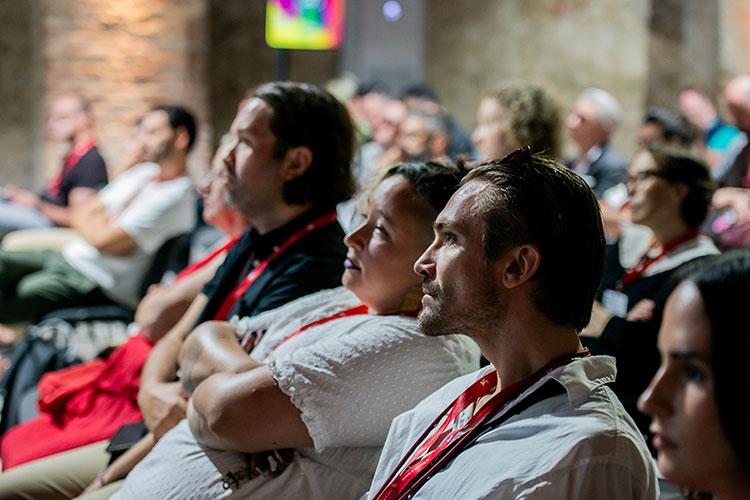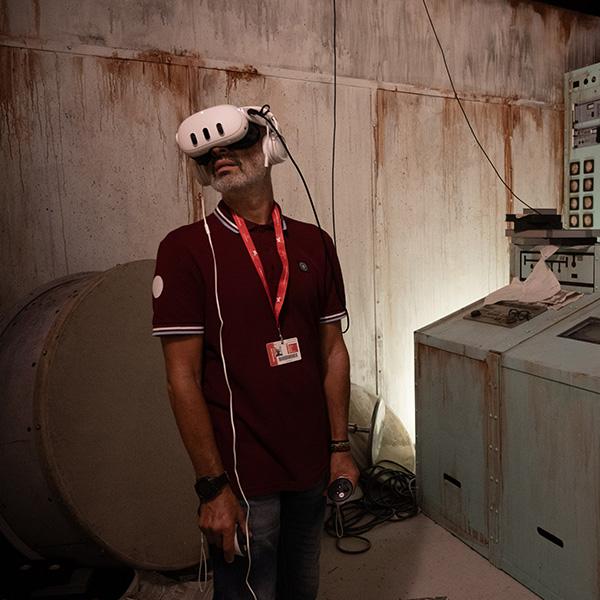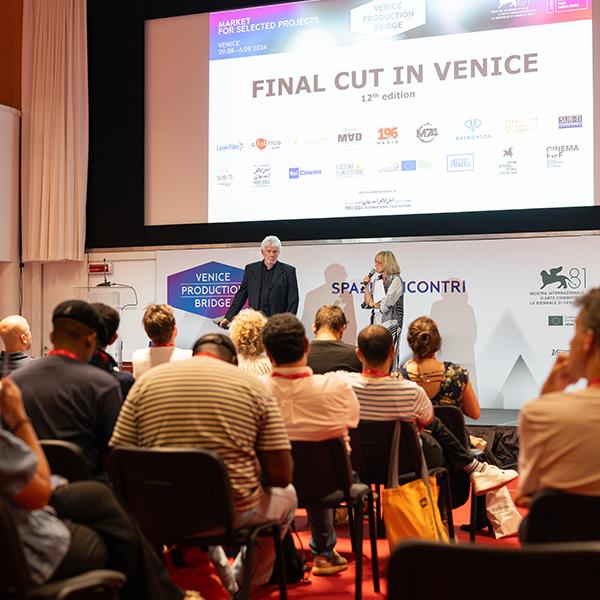“Seeking New Perspectives: Twelve years of the Biennale College Cinema”

Biennale College Cinema: international panel on Tuesday 3 September
The discussion (c/o Hotel Excelsior, 11:30 am) is chaired by film historian Peter Cowie.
Moderator’s Introduction
Exactly eleven years ago to the day, I introduced the first panel devoted to the Biennale College Cinema project, and I said that “this programme places the focus squarely on two essential themes – the making of micro-budget films in a period of global recession, and the need to find youthful auteurs if the cinema is to be reinvigorated.”
The programme has indeed held fast to its initial aims, and here on the panel we've had the pleasure of viewing more than forty feature films. Some have been outstanding, and have gone on to find distribution in major territories. Others have been worthy and have travelled to numerous festivals in the wake of their premiere here at the Mostra. Just a handful have been less than successful.
Since 2012, the workshop has awarded the Biennale grants to produce 37 feature-length films, promoting new talents that have established their names nationally and internationally. These projects were selected from no fewer than 2,337 applicants from all over the world.
The reasons for the consistently high standards of these films, however, may be found in the nature of the Biennale College Cinema itself. From the outset, it has encouraged talented young filmmakers not just to produce a first or second feature, but also to work in close association with the mentors appointed by the Biennale itself. This doesn't involve censorship, but rather it ensures that a project is kept on track from the script stage to final editing. It's often said that F. Scott Fitzgerald would not have become a great novelist had he not been shepherded by a great editor like Maxwell Perkins. Even in the unashamedly commercial world of 1940s Hollywood, Michael Curtiz's masterpieces such as Casablanca and Mildred Pierce owed much to the shrewd supervision of producers like Hal Wallis and Jerry Wald.
This partnership, as it were, between creative teams and highly-qualified mentors is all the more significant when one considers the budget allotted to each film – € 200,000 and not a penny more. The Biennale College Cinema programme is unique in that, unlike most foundations and funding institutions, the entire budget of each selected film is covered by the Biennale.
Panelists
Peter Cowie (moderator)
In 1963, Peter Cowie launched the annual International Film Guide, which appeared under his editorship for 40 years. He has written more than 30 books about film, including biographies of Welles, Kurosawa and Coppola. Among the publications he has written articles for are The New York Times, The San Francisco Chronicle, The Los Angeles Times, the London Sunday Times, The Wall Street Journal, Le Monde, Expressen, Neue Zürcher Zeitung, and Sight and Sound. He was International Publishing Director of Variety from 1993 to 2000. His biography of Ingmar Bergman, God and the Devil, came out from Faber and Faber last November, and his oral history of the life and career of Ray Dolby was published in January.
Sara Ehnholm Hielm
Ehnholm Hielm is a film critic at Hufvudstadsbladet in Helsinki. Finland. She is also a publisher, and the author of the book Hur jag gick på bio och aldrig com tillbaka ("How I Went to the Movies and Never Came Back") about a life spent watching, writing about and loving films.
Glenn Kenny
Kenny writes film criticism for RogerEbert.com, the New York Times, the Boston Globe, and other publications. He contributes essays and audio commentaries to physical media issued by the Criterion Collection, Arrow, and Indicator. He is the author of Made Men: The Story of ‘Goodfellas’, published by Hanover Square Press; 2024 will see the publication of hisThe World Is Yours: The Story of ‘Scarface’.
Michael Phillips
Phillips has been the film critic of the Chicago Tribune since 2006, joining the Tribune four years prior as theatre critic – a post he held at the Los Angeles Times and the San Diego Union-Tribune, among other papers. He is frequent guest on the Filmspotting podcast, and can be heard weekly on Classical WFMT's film music program SOUNDTRACK. He's a graduate of the University of Minnesota, and began his career as arts editor of the Twin Cities weekly City Pages.
Savina Neirotti
Born in Genoa, Neirotti graduated in Philosophy and completed the first year of a Master's in Aesthetics at the University of Pennsylvania. Since 2005 she has conceived and been in charge of Script&Pitch Workshops and TorinoFilmLab. She has headed the Biennale College Cinema program since its inception in 2012, and the Biennale College Cinema Immersive since 2017.
Chris Vognar
Vognar writes for publications including the New York Times, the Los Angeles Times, Rolling Stone, and the San Francisco Chronicle. He is a former Nieman journalism fellow at Harvard. This is his seventh appearance on the Biennale College panel.
Stephanie Zacharek
Zacharek is the film critic for Time magazine and an adjunct professor at NYU’s Martin Scorsese Department of Cinema Studies. She was previously chief film critic for the Village Voice and Salon.com, and her writing on books and pop culture has also appeared in the New York Times, New York Magazine, Rolling Stone, and Sight and Sound. She has served on the juries of the Berlin Film Festival, the Busan Film Festival, and the Mumbai Film Festival, and is a member of the New York Film Critics Circle and the National Society of Film Critics. She was a finalist for the 2015 Pulitzer Prize in criticism.
Biennale College Cinema
Biennale College Cinema, organized by La Biennale di Venezia, is supported by the Ministry of Culture – General Directorate Cinema. The main sponsor of the initiative is Vivendi. Biennale College Cinema relies on the academic collaboration of the Gotham Film & Media Institute and the TorinoFilmLab. The educational activities are made possible by the Creative Europe – Media programme.The Director is Alberto Barbera, Head of Programme is Savina Neirotti.






